
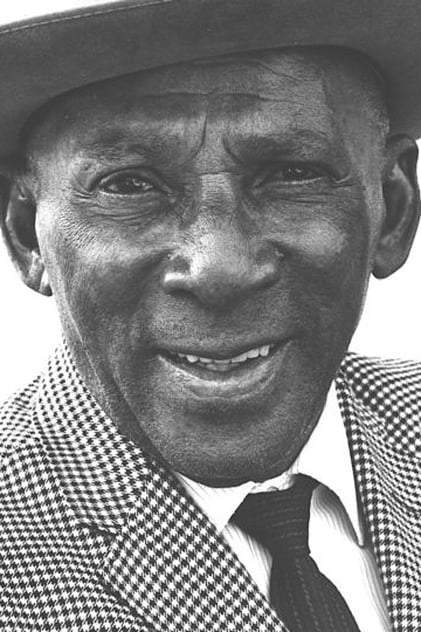
Rafael Hernández
Born: October 24, 1892
Died: December 11, 1965
in Aguadilla, Puerto Rico
Died: December 11, 1965
in Aguadilla, Puerto Rico
Rafael Hernández Marín (October 24, 1892 – December 11, 1965) was a Puerto Rican songwriter, author of hundreds of popular songs in the Latin American repertoire. He specialized in Puerto Rican styles such as the canción, bolero and guaracha. Among his most famous compositions are "Lamento Borincano", "Capullito de alhelí", "Campanitas de cristal", "Cachita", "Silencio", "El cumbanchero", "Ausencia" and "Perfume de gardenias".
Rafael Hernández Marín was born in the town of Aguadilla, Puerto Rico, into a poor family, on October 24, 1892. His parents were María Hernández Marín and Miguel Angel Rosa, though he was given only his mother's surname. As a child, he learned the craft of cigar making, from which he made a modest living. He also grew to love music and asked his parents to permit him to become a full-time music student. When he was 12 years old, Hernández studied music in San Juan, under the guidance of music professors Jose Ruellan Lequenica and Jesús Figueroa. He learned to play many musical instruments, among them the clarinet, tuba, violin, piano, and guitar. At the age of 14, he played for the Cocolia Orquestra. Hernández moved to San Juan where he played for the municipal orchestra under the director Manuel Tizol. In 1913, Hernández begot his first child, Antonio Hernández (out of wedlock), to Ana Bone.
In 1917, Hernández was working as a musician in North Carolina, when the United States entered World War I. The jazz bandleader James Reese Europe recruited brothers Rafael and Jesús Hernández, and 16 more Puerto Ricans to join the United States Army's Harlem Hell fighters musical band, the Orchestra Europe. He enlisted and was assigned to the U.S. 369th Infantry Regiment (formerly known as the 15th Infantry Regiment, New York National Guard, created in New York City June 2, 1913). The regiment, nicknamed "The Harlem Hell Fighters" by the Germans, served in France. Hernández toured Europe with the Orchestra Europe. The 369th was awarded the French Croix de Guerre for battlefield gallantry by the President of France.
After the war, Hernández moved to New York City. In the 1920s, he started writing songs and organized a trio called "Trio Borincano". In 1926, fellow Puerto Rican, Pedro Flores who was a composer, joined the Trio. Even though Hernández and Flores became and always remained good friends, they soon went their separate ways and artistically competed against each other. After the trio broke up, he formed a quartet called "Cuarteto Victoria" which included singer Myrta Silva, also known as La Guarachera and La Gorda de Oro. With both groups, Hernández traveled and played his music all over the United States and Latin America. On September 2, 1927, Hernández' sister Victoria opened Casa Hernandez, a music store which also acted as a booking agency and base of operations for her brother. In 1929, Trío Borinquen recorded Linda Quisqueya (originally titled Linda Borinquen) and that same year he founded the "Cuarteto Victoria" (also known as "El Cuarteto Rico") named after his sister. ...
Source: Article "Rafael Hernández Marín" from Wikipedia in English, licensed under CC-BY-SA 3.0.
Rafael Hernández Marín was born in the town of Aguadilla, Puerto Rico, into a poor family, on October 24, 1892. His parents were María Hernández Marín and Miguel Angel Rosa, though he was given only his mother's surname. As a child, he learned the craft of cigar making, from which he made a modest living. He also grew to love music and asked his parents to permit him to become a full-time music student. When he was 12 years old, Hernández studied music in San Juan, under the guidance of music professors Jose Ruellan Lequenica and Jesús Figueroa. He learned to play many musical instruments, among them the clarinet, tuba, violin, piano, and guitar. At the age of 14, he played for the Cocolia Orquestra. Hernández moved to San Juan where he played for the municipal orchestra under the director Manuel Tizol. In 1913, Hernández begot his first child, Antonio Hernández (out of wedlock), to Ana Bone.
In 1917, Hernández was working as a musician in North Carolina, when the United States entered World War I. The jazz bandleader James Reese Europe recruited brothers Rafael and Jesús Hernández, and 16 more Puerto Ricans to join the United States Army's Harlem Hell fighters musical band, the Orchestra Europe. He enlisted and was assigned to the U.S. 369th Infantry Regiment (formerly known as the 15th Infantry Regiment, New York National Guard, created in New York City June 2, 1913). The regiment, nicknamed "The Harlem Hell Fighters" by the Germans, served in France. Hernández toured Europe with the Orchestra Europe. The 369th was awarded the French Croix de Guerre for battlefield gallantry by the President of France.
After the war, Hernández moved to New York City. In the 1920s, he started writing songs and organized a trio called "Trio Borincano". In 1926, fellow Puerto Rican, Pedro Flores who was a composer, joined the Trio. Even though Hernández and Flores became and always remained good friends, they soon went their separate ways and artistically competed against each other. After the trio broke up, he formed a quartet called "Cuarteto Victoria" which included singer Myrta Silva, also known as La Guarachera and La Gorda de Oro. With both groups, Hernández traveled and played his music all over the United States and Latin America. On September 2, 1927, Hernández' sister Victoria opened Casa Hernandez, a music store which also acted as a booking agency and base of operations for her brother. In 1929, Trío Borinquen recorded Linda Quisqueya (originally titled Linda Borinquen) and that same year he founded the "Cuarteto Victoria" (also known as "El Cuarteto Rico") named after his sister. ...
Source: Article "Rafael Hernández Marín" from Wikipedia in English, licensed under CC-BY-SA 3.0.
Movies for Rafael Hernández...
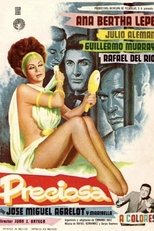
Title: Preciosa
Released: August 26, 1965
Type: Movie
Successful nightclub singer has difficulties with her love life.


Title: La música de Rafael Hernández
Released: January 1, 1965
Type: Movie
Homage to the Puerto Rican composer Rafael Hernández.


Title: Mr. Dólar
Character: Himself
Released: December 18, 1964
Type: Movie
A Puerto Rican goes to New York to seek his fortune.

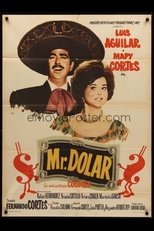
Title: Los expatriados
Character: Himself
Released: January 1, 1963
Type: Movie
The film, which is an ode to Rafael Hernández's song "Lamento borincano", is a social commentary of the political and social policies of the 40's and 50's which led to the abandonment of what was seen by many as the "pure", "virtuous" life of the finca (farm) for the "corrupting" influence of urban centers like San Juan and New York City.

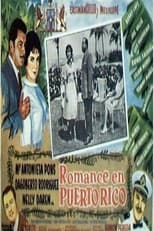
Title: Romance in Puerto Rico
Released: November 21, 1962
Type: Movie
Rosina is frustrated by her engagement to millionaire John Johnson III, a fussy, domineering, control freak. The night before her wedding, she goes out dancing with her maid María, María's husband Tomás, and their friend Gordillo. When Rosina learns Gordillo is a sailor on the yacht owned by Mexican film star José María Beltrán, she decides to stow away and sail to Mexico to be with her grandmother.



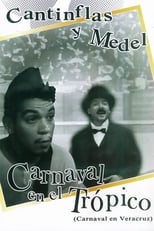
Title: Carnaval en el trópico
Released: June 7, 1942
Type: Movie
Three Mexican friends decide to go to Vercacruz Carnaval to celebrate. There they watch Cantinflas' show of torero and boxer.

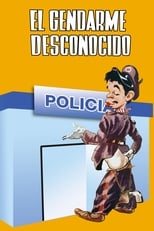
Title: The Unknown Policeman
Character: (uncredited)
Released: October 22, 1941
Type: Movie
A gang of thieves has jeopardized the city and even the police, whose chief urges their forces to captured the band within 48 hours. Meanwhile, band members meet in a cafe run by a widow and her daughter and her suitor, Cantinflas, who maintains a scuffle with the robbers running all at the station. Since then, Cantinflas become a member of the police force for special missions.

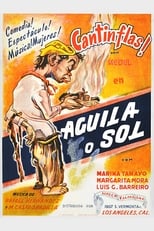
Title: Águila o sol
Character: Singer
Released: May 4, 1938
Type: Movie
At birth, three children are abandoned in a convent. They are Polito Sol and his siblings, Adriana and Carmelo Águila and they grow up to become the "Águila o Sol" trio. Many years later, Don Hipólito, Polito's father becomes rich and decides to search for his son. In the end he finds Polito and the Aguila siblings.
